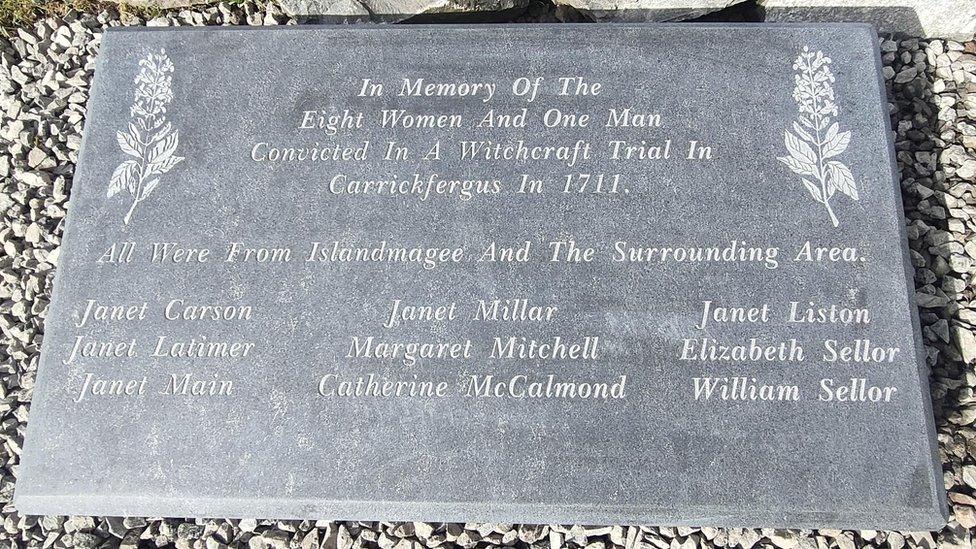Virtual reality: Modern magic brings Islandmagee witches to life
- Published
People have the chance to walk in the shoes of eight women and a man found guilty of witchcraft
The last witchcraft trial to take place on the island of Ireland is being brought to life in a new virtual reality experience.
In 1711, eight women and a man were found guilty of witchcraft at Carrickfergus courthouse.
A young girl new to the area, Mary Dunbar, had accused them of bewitching and tormenting her, culminating in a dramatic trial.
The group would become known as the Islandmagee Witches.
The majority were sentenced to a year in jail and forced to do time in the public stocks.
Now people will have the chance to experience the witch trial for themselves.
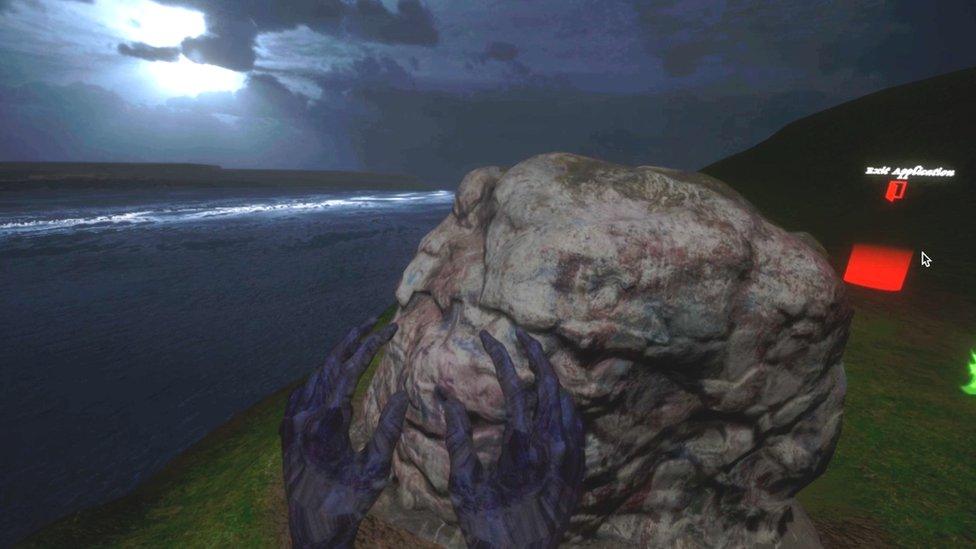
The Demonised: Possessed and Bewitched experience is being launched at Carrickfergus Museum
The Demonised: Possessed and Bewitched experience is being launched at Carrickfergus Museum in September.
It is part of a new exhibition on the Islandmagee Witches which runs until mid-November.
The magic of technology
The project harnesses cutting-edge virtual reality (VR) technology that has been developed by Belfast tech firm Sentireal on behalf of Ulster University (UU).
Research from across the university's north-west campuses was also used to bring the centuries old story to life.
Dr Helen Jackson, a senior lecturer in interactive media at UU, said academics and industry working together made things "more enhanced".
"It has allowed us to bring this important piece of our history to life in a way that will engage people in the 21st century" she said.
"We wanted people to give people a sense of what it means to be persecuted and that feeling of being disorientated, confused and alienated and even nervous when you know everyone is against you."
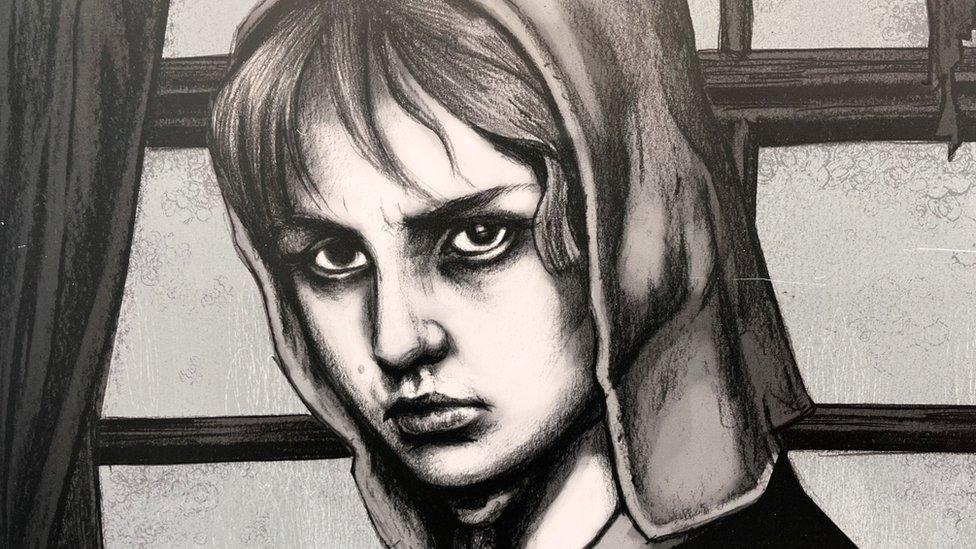
The story of the Islandmagee Witches has also being told through the medium of a graphic novel
Dr Victoria McCollum, a senior lecturer in cinematic arts at UU, said her students were involved in all aspects of the project.
"When you've the headset on, the people you hear in your ears when the town folks are whispering about you, that's actually our drama students," she said.
"One of our students from creative musicianship even created this beautifully bespoke score for the experience.
"It was a chance for our students to get into the studio and create something that would become concrete and work with industry leaders."
The Islandmagee story has been dubbed by some as the Irish real-life version of The Crucible, US playwright Arthur Miller's story about witchcraft and persecution.
New audiences
The so-called witches were eventually convicted of "harming by magical means" under the 1586 Witchcraft Act.
Those convicted were from Islandmagee and the surrounding areas.
UU also produced a graphic novel to help bring the story of the witch trial to new audiences.
A plaque to commemorate the trial was unveiled in Carrickfergus in March.
Dr Andrew Sneddon, a senior lecturer in international history and co-author of the book The Witches of Islandmagee, also worked on the VR project.
He said there were strong suspicions that Mary Dunbar was faking her experiences and had made the story up.
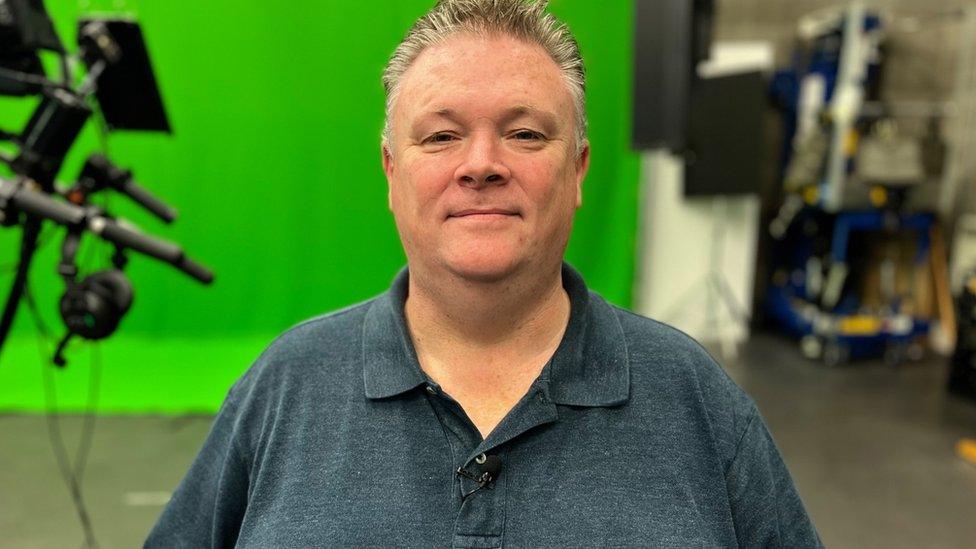
Sentireal CEO Tom Houston said they have used cutting edge VR technology to bring the story to life
Through virtual reality technology, people can step into Mary's shoes and discover what it might feel like to be possessed.
"The project is designed to take the hidden history of Ireland's last witch trial to new audiences using new technologies and approaches," Dr Sneddon said.
"It taps into an essential part of Ireland's cultural heritage and allows people to navigate, in an interactive way, the moral choices and dilemmas in accusing someone of witchcraft in the early modern world."
Sentireal CEO Tom Houston said the company used cutting edge VR technology to bring the story to life.
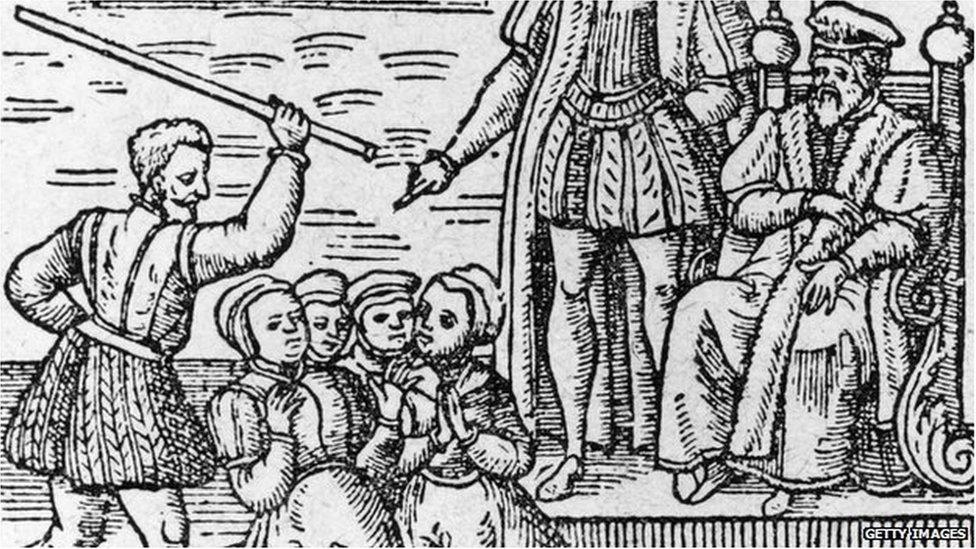
If a person was convicted of witchcraft they could serve jail time, be put in the stocks or even face the death penalty
When users put the headset on they are transported to Islandmagee and find themselves in the place of either Mary or one the accused witches.
In the virtual world there are objects connected to the story that users can interact with which will cause them to spin and levitate.
Mr Houston said it was important to develop a platform that made it accessible for people who had no technical expertise in VR.
"There really are no limits to what can be achieved with VR, we hope it helps in the education of the next generation of VR specialists as well as in boosting tourism in the Antrim area," he said.
- Published5 February 2015
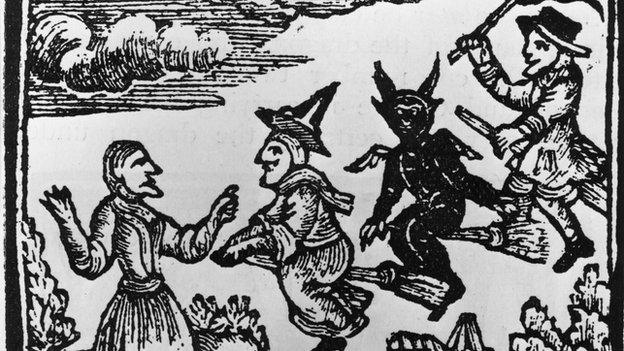
- Published21 March 2023
